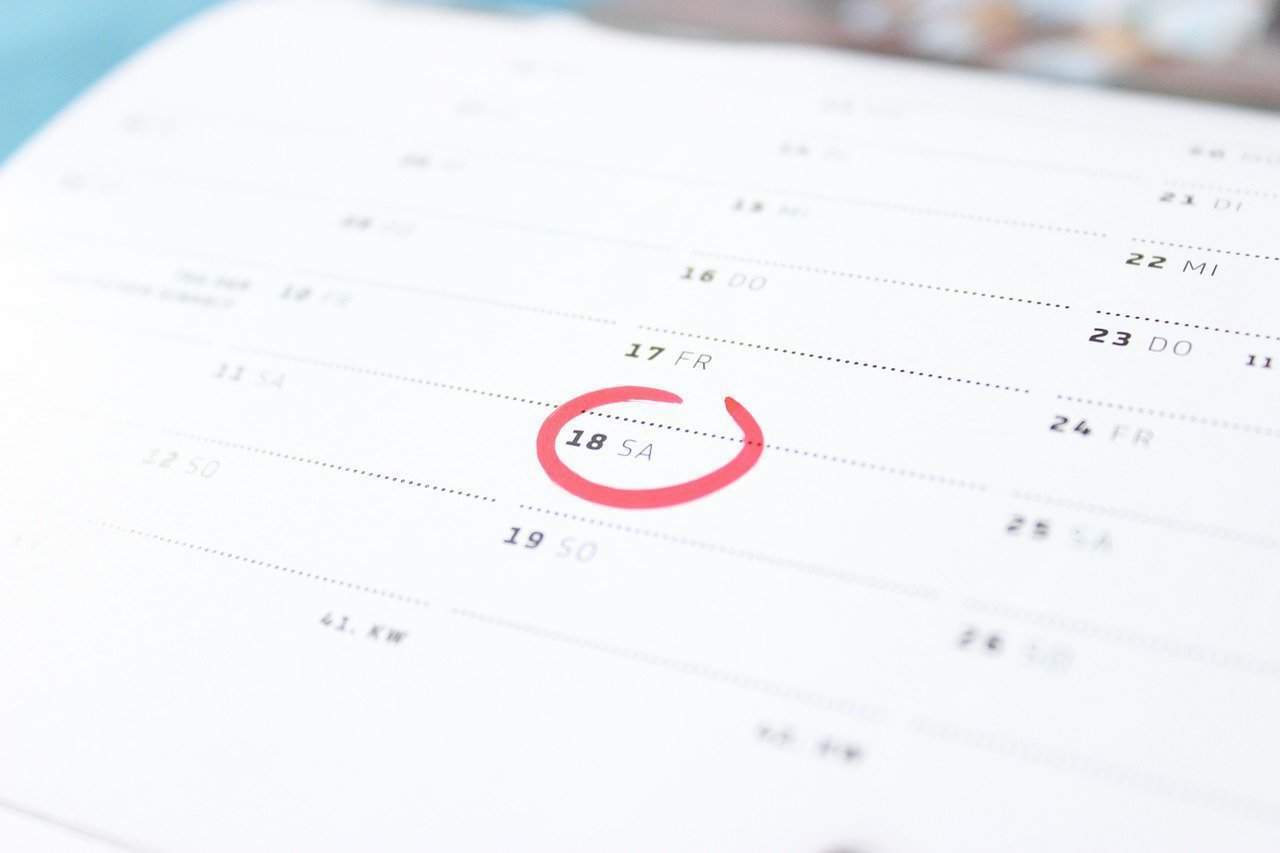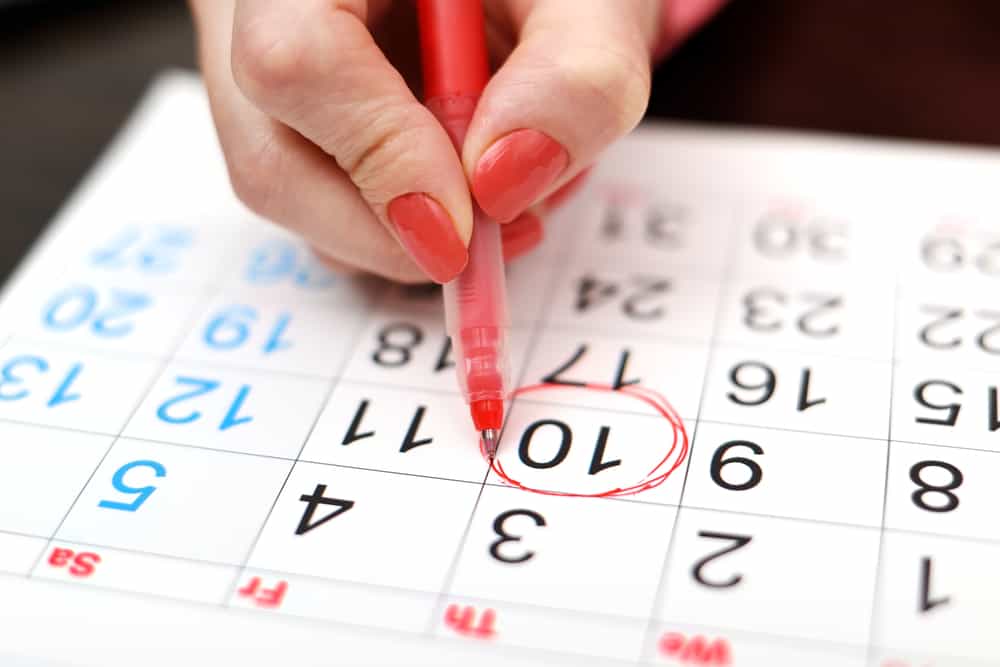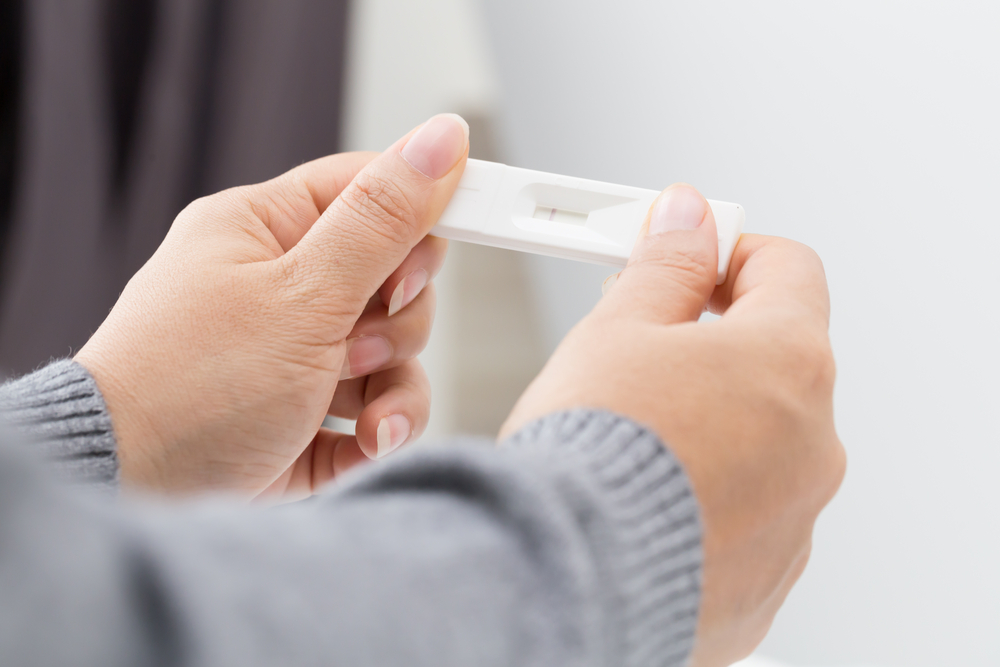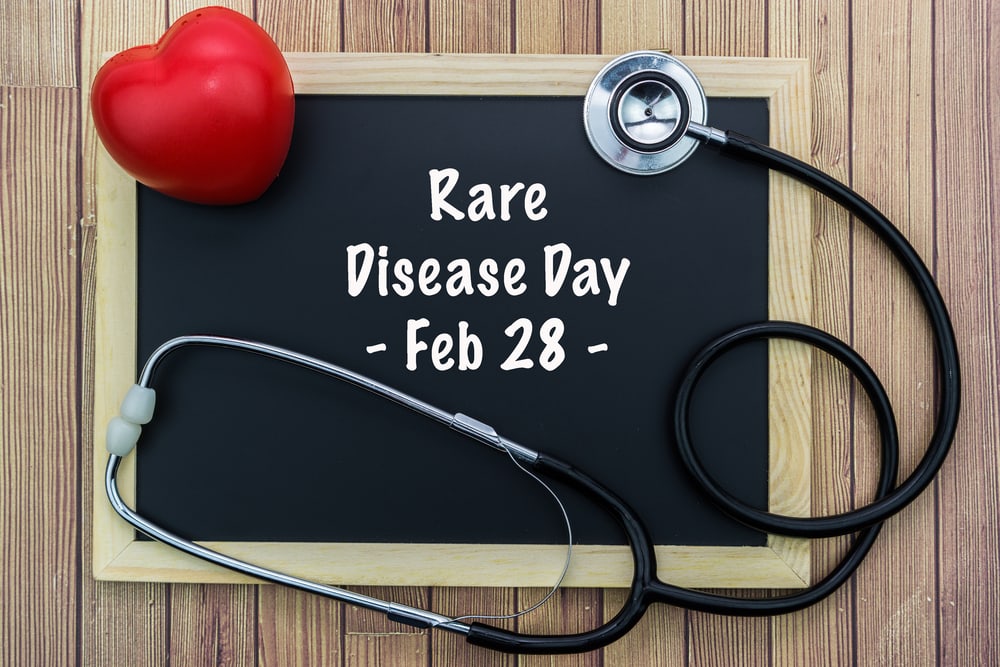Contents:
- Medical Video: When to Check your Fertility
- What is a woman's fertile period?
- How do you calculate a woman's fertile period so that she is pregnant?
- What are the signs of a woman's fertile period?
- 1. Pay attention to your body temperature
- 2. Recognize the characteristics of the right cervical mucus
- 3. Changes in position and cervical tension
- When does infertility occur?
- Tips or quick ways to get pregnant that can be done by prospective pregnant women
- 1. Check with your doctor
- 2. Do some of these tips after having sex
- 3. Maintain the body to stay fit and healthy for prospective pregnant women and partners
- 4. Don't be too stressed to calculate the fertile period and infertility during the pregnancy program
- Pregnancy signs that must be considered in addition to calculating the fertile period
Medical Video: When to Check your Fertility
It is better for prospective pregnant women to know the time of the woman's fertile period and when it is not her fertile period. Women's fertility is future ovulation (when the ovary releases the egg). Knowing the fertile period is one way to get pregnant quickly which has a considerable opportunity. Let's find out more about what is the fertile period and how to calculate the fertile period of women in the explanation below.
What is a woman's fertile period?
Knowing when a woman's fertile period is a quick way to get pregnant which can actually be increased so that fertilization can occur. The fertile period of women occurs when the egg is released from the ovary, so it is ready to be fertilized by sperm so that fertilization is successful. While in infertile women, chances of pregnancy are smaller.
This woman's fertile period occurs every month. If the egg is released when the woman's fertile period is successfully fertilized by sperm, then the woman will potentially get pregnant. But if it is not fertilized by sperm, the egg will die and menstruation will occur.
Your eggs will be released every month and within a period of time that can be detected if you have a regular menstrual cycle. But for those of you who have less regular menstrual cycle, it may be difficult to be able to detect when your body will release eggs every month.
How do you calculate a woman's fertile period so that she is pregnant?
The fertile period of women generally occurs around 12 to 14 days before menstruation. To calculate the fertile period, you must first know the times when menstruation occurs. Make and note on the menstrual calendar to find out the estimated period and calculate the fertility period.
The average fertility period of women takes place on days 10 to 17, calculated after the first day of menstruation. However, this applies if your menstrual cycle lasts 28 days. Because, there are some women who experience the menstrual cycle starting from 28 days or even 35 days.
It should be noted and noted, when prospective pregnant women must calculate the fertile period, this period usually occurs in four to five days before ovulation (release of eggs by the ovary). Even fertility can also take place one day before or during ovulation. This period of about 1 week is the most fertile period in women.
You also have to remember, too, that sperm can only survive for 3 days or more. While the egg can survive only one day. So make the best use of this woman's fertile period to help you get pregnant quickly.
So, as one way to get pregnant quickly, don't forget to always calculate the fertile period. If you already know when a woman's fertile period, do sexual intercourse 2 or 3 days before the egg is released. You can also have sex 12 to 24 hours after ovulation occurs. Having sex when this time is the wayget pregnant fast which is quite effective and very likely to succeed.
To find out when the next fertile period and ovulation day, you can use itFertility Calculator Healthy Hello by clicking on the image below:
What are the signs of a woman's fertile period?
As one way to get pregnant fast, you also need to know the characteristics of the body experiencing a fertile period or during infertility. Because, this can help you in planning a pregnancy. You can find out your fertile period if you know when the body will release the egg in the following way:
1. Pay attention to your body temperature
Body temperature when you first wake up (basal body temperature) can change following the body's hormone levels. Hormone levels can change throughout the menstrual cycle. Initially, the ovary releases estrogen. When the estrogen hormone level is high enough, your ovary will release the egg.
In addition, the body will also start releasing the hormone progesterone which causes your temperature to rise slightly. This is a sign that the body is ready to fertilize (the egg is fertilized by sperm) and the uterus is ready as a place to attach the egg.
When ovulation occurs, the body temperature will change to higher than usual, so you can check whether the body has released the egg or not from the temperature changes that occur.
Note the basal body temperature every morning before getting out of bed can help you to know when eggs are released by the ovary (Ovary). Therefore, you should note the basal body temperature in a few months, so you will get a pattern that shows the time of ovulation. This can help calculate fertility and as a quick way to get pregnant for those of you who are planning a pregnancy.
However, maybe a quick way to get pregnant like this is a bit difficult to distinguish if you are in a condition of fever, lack of sleep, or not sleeping well. Especially if you've moved a lot after waking up, because all of that can affect the temperature when measuring with a thermometer. Remember, just doing a little movement when you wake up can change your basal body temperature.
2. Recognize the characteristics of the right cervical mucus
An increase in the amount of estrogen released by the body also affects the texture of mucus in the cervix. When the body is preparing to be fertilized, this mucus will have a texture that is more elastic, transparent, and slippery, like egg white.
This texture can help sperm swim to reach your egg. When the mucus texture in the cervix is like this, it means you are in your fertile period.
However, there are a number of other things that can affect the texture of your mucus, such as vaginal infections or sexually transmitted diseases, sex drive, and the use of lubricants during sexual intercourse.
The following is a pattern of mucus in the cervix that is common in many women:
- After the menstrual cycle, the mucus that comes out becomes more sticky
- During fertility or ovulation, more mucus is expelled, wet, slippery, and transparent, like egg white
- After ovulation, the mucus is thicker in texture and the amount produced is less
3. Changes in position and cervical tension
During ovulation, the cervix will feel softer, taller, more open and wet. This aims to give sperm an opportunity to enter the cervix and then fertilize the egg.
Most women need some time to be able to distinguish between a normal cervical condition and a cervical condition that is undergoing changes during ovulation.
This change may be difficult to distinguish for most women. You can check the cervix every day using one or two fingers, so you will find the changes.
In addition, there are also other signs of ovulation that may not all women experience it. Other signs of ovulation include:
- Blood spots
- Mild cramps or pain on one side of the pelvis
- Pain in the breast or breast feels softer
- Stomach feels bloated
- Increased sex drive
- More and more vaginal discharge is issued
- Feel sexier and smell better
When does infertility occur?
Hanging hopes of conception during the fertile period is not always accurate and one hundred percent guarantees pregnancy. The problem is that a woman's menstrual cycle tends to change continuously so that it is difficult to detect.
But at least, in addition to calculating the fertile period, you can be able to measure when you have to have sex more often to get pregnant and when you and your partner can take a break for a while.
There is a fertile period, and there are also infertile women. The infertile period of women is interpreted by the small chance of pregnancy. This is roughly the case on the first day of menstruation until the seventh day. At this time, the egg is not being produced so that sperm cells cannot fertilize.
Then, a day to two days after menstruation is completethe woman's body also usually does not enter the fertile period so the chances of pregnancy remain small. If you make love without contraception the day after menstruation is completesperm may still live in the body until five days later. Then sperm cells will die. Meanwhile, the egg may be released for days after the sperm cells die. So, pregnancy is difficult.
However, back again that the fertile period and infertile period of this woman is one of the only supporters for your pregnant endeavors. You also have to consider several factors such as your health and your partner.
Tips or quick ways to get pregnant that can be done by prospective pregnant women
Besides having to check when a woman's fertile period and infertility occur, knowing body changes, knowing the characteristics of being pregnant, prospective pregnant women can do the following tips to get pregnant quickly:
1. Check with your doctor
Prospective pregnant women can consult and visit a doctor with a partner to plan a pregnancy. Later, your doctor may check your body's condition and help track when your fertility and infertility period, so you can have sexual intercourse at the right time to get pregnant.
Your doctor or midwife can also help you prepare your body for a healthy pregnancy, for example by suggesting eating healthy foods or certain supplements (such as folic acid).
2. Do some of these tips after having sex
- Lying after having intercourse by raising your legs slightly upward may help sperm swim towards the egg. Although some people think this is just a myth, you can still try this method.
- Make sexual relations before going to bed, because some sources say that the highest sperm production is in the morning. But actually there is no best time in a day to have sex. You can do it anytime.
- Find out position of sexual intercourse which is comfortable for you and your partner. Maybe you have heard a number of sexual positions are the best position to get pregnant quickly. However, all of this is just a myth. There is no best position so you get pregnant quickly.
3. Maintain the body to stay fit and healthy for prospective pregnant women and partners
Of all the fast pregnant methods above, you are obliged to keep your body healthy and fit. Follow and apply this healthy lifestyle to prospective pregnant women and their partners:
- Reducing alcohol consumption. Research shows that drinking alcohol every day can reduce testosterone levels and sperm counts, and increase the number of abnormal sperm.
- Quit smoking. Smoking can reduce sperm performance.
- Maintain a normal weight. Obesity can decrease sperm count and slow the movement of sperm.
- Sufficient nutrition needs to form healthy sperm. Some of the nutrients you need to maintain sperm quality and quantity are vitamin C, vitamin D, zinc, folic acid, and calcium.
- Do not soak hot water. Hot temperatures can kill sperm. The testicles can function well at temperatures of 34.4 to 35.6 degrees Celsius, below normal body temperature.
4. Don't be too stressed to calculate the fertile period and infertility during the pregnancy program
If you really want to have children, expectant mothers should not be too stressful about this. Stress can actually interfere with ovulation (release of eggs), so you can have difficulty getting pregnant because it's too stressful.
We recommend that you take this matter casually, enjoy sexual relations with your partner and do not think too much about whether you managed to get pregnant or not. Stress will also make you forget to calculate the fertile period, which is actually messing up the program or some quick pregnancy methods that you have designed with your partner.
Pregnancy signs that must be considered in addition to calculating the fertile period
It is not uncommon for pregnant women not to think that they are pregnant because they are fixated by just counting the fertile period. Actually there are several characteristics of pregnancy that are not only late for menstruation, but also other symptoms:
- The breasts are sore and swollen. Hormonal changes in early pregnancy can make your breasts soften, sensitive, or sick. Your breasts can also feel fuller and heavier.
- Nausea, with or without vomiting. Morning sickness, which can strike at any time, day or night, sometimes starting at the earliest three weeks after conception. The cause of nausea during pregnancy is still unclear, but pregnancy hormones may be the cause. Pregnant women may also find that a previously unobtrusive aroma will cause nausea.
- Frequent urination. You can find yourself urinating more often than before.
- Feel more tired. Fatigue also ranks highest of early pregnancy symptoms. During early pregnancy, the level of the hormone progesterone soars. This is what can make you sleepy.
- Missing appetite or even cravings. When you are pregnant, you may suddenly not like some foods. Cravings are also common. Like most other pregnancy symptoms, the desire to eat certain foods may be related to hormonal changes.
To find out how to get pregnant quickly and the right way, you can also consult a doctor. That way, you will know the condition of your reproductive health and your partner in full, so you can find out how much chance that pregnancy can occur.















